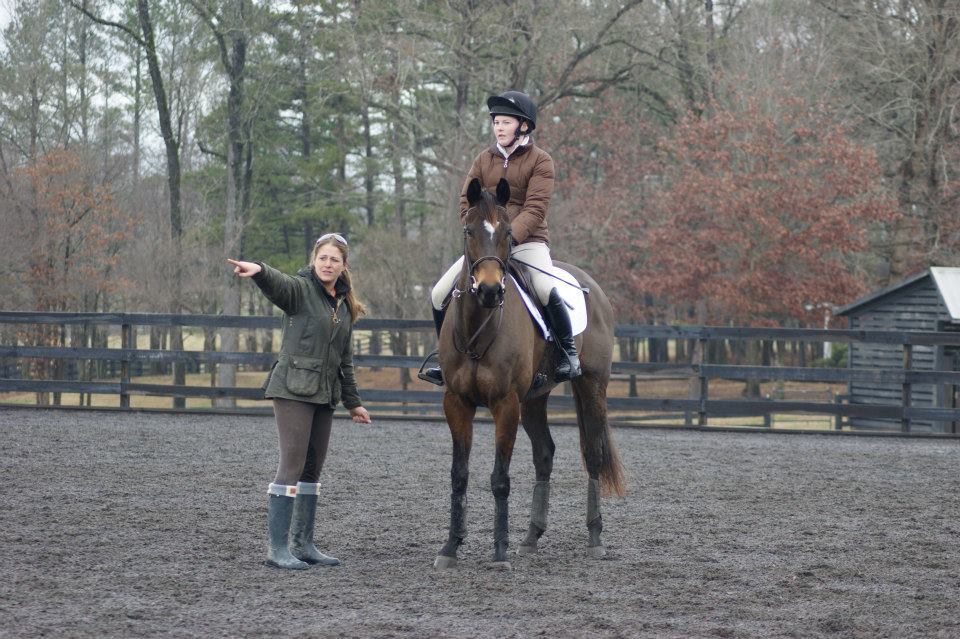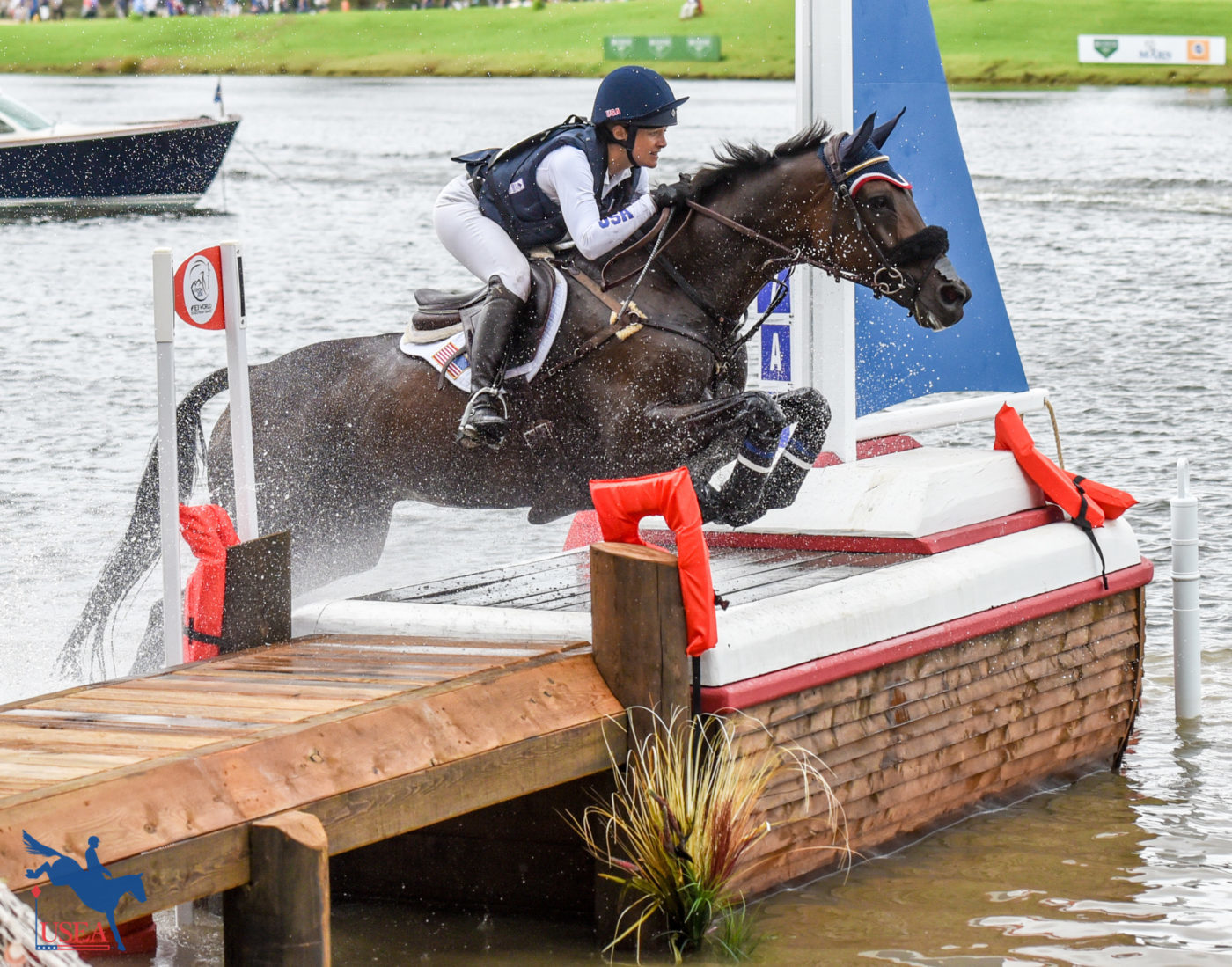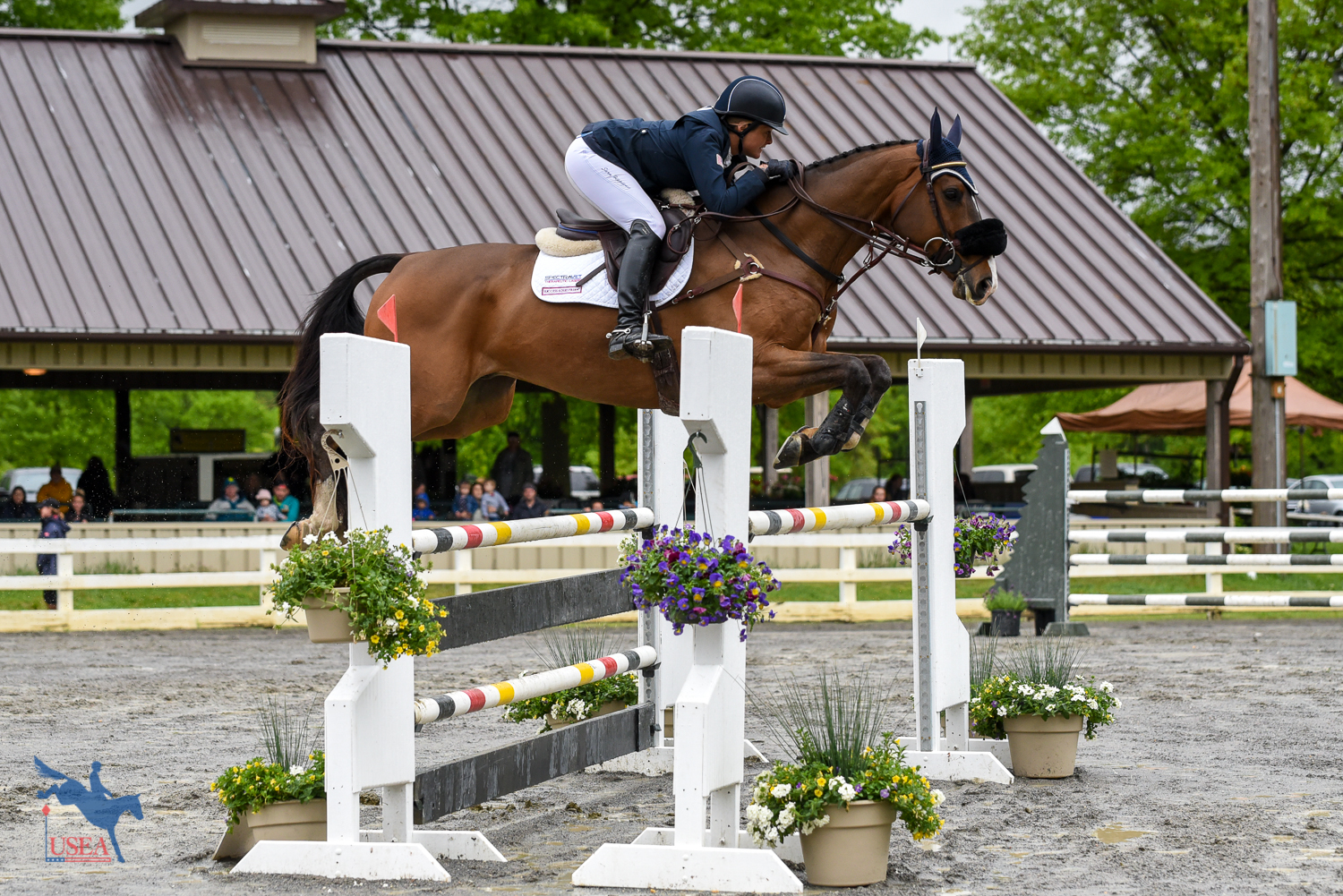The “Featured Clinician” article series is provided through a partnership between STRIDER and the United States Eventing Association (USEA). This article published in USEventing on Dec 11, 2018 and is being posted here to ensure widest possible dissemination
U.S. Eventing team member Lynn Symansky set aside some time to chat with STRIDER about community, teaching, and never giving up.
A traditional “A” graduate from the Difficult Run Pony Club, Symansky’s competitive nature and team sportsmanship were fostered through involvement in United States Pony Club rallies and activities. Horsemanship is a key value for Symansky, and has been demonstrated throughout her career up to the four-star level and as a member of multiple United States Equestrian Teams.
At the time of our interview, Lynn had just returned from Massachusetts’ Equine Affaire where her clinic sessions were conducted in front of a full stadium of people. “I enjoy educating others. Clinics are great for helping educate riders that there isn’t one set way to do stuff. As riders, we all need to think outside the box.”

“I really like working with horses and helping people with those horses. It’s like a puzzle, reading each horse and rider combination and figuring out how to help them to work more harmoniously. Each horse and rider are different and I enjoy helping different pairs work through exercises. What is easy for one pair in one exercise may be difficult for another and vice versa. I enjoy figuring out approaches that will work.”
Regarding her expectations for riders who participate in clinic sessions, Symansky told us, “At the end of the day, we are lucky to be riding horses and doing what we love, as professionals or amateurs. Attitude comes first, 100 percent. I don’t expect riders to show up and be fantastic, but I do expect a good attitude beyond anything else.”
A good attitude and tons of patience are much of what contributed to Symansky’s success with Donner, her partner for the 2018 FEI World Equestrian Games at Tryon. “I had lots of frustrating times with Donner, but then I would be competitive.”
For riders working with difficult horses, Symansky said, “Learn to enjoy the process. You have to really really work on your patience in terms of having patience for the horse you are working with and for understanding where your goal is at the end of the day. Get on the same page as your horse.” Progress isn’t linear. “You feel like you take two steps forward and a few more back. Overall the graph trends upward, but don’t get too caught up in how each day differs.”

“I didn’t go to Young Riders as a kid, and at the time I thought that was a big deal,” Symansky told EC when asked about what advice she might give a younger version of herself. “I got to some really good places without having been there. I learned just as much about working with other people and horsemanship doing pony club rallies.”
If she could, Symansky said she would tell herself “not to get so devastated when something goes wrong. For instance, if a horse is injured and you miss a competition. When you’re younger it seems like the weight of the world lies on that one thing. You get a lot of perspective as you get older. There are always more horse shows.”
Symansky’s career as an equestrian has a long list of highlights, but there was a time when she was on track to pursue a career in law. A major turning point was the decision to gain mileage at the Advanced Level.
“Not selling No It Tissant, my first Advanced horse, has certainly helped to get me where I am today. I had an offer to sell him to a professional rider – I was a peanut on a super talented horse and had the chance to make quite a bit of money. I held onto him and was able to gain a ton of experience. Had I sold him, I wouldn’t be where I am today. As a rider, you have to acknowledge what your goals are.” She reminded riders to “never give up, even when you have failed 732 times.”

It seems both horsemanship and sportsmanship are prominent themes in Symansky’s career, and the in the sport of eventing in general. “When competing, I’m riding against my best friends. I want to kick their behinds, but I am so happy for them when they do better than I do. This sport really lets us have empathy for our fellow competitors. The goal is to win, but it’s nice to see others succeed.”
“It’s insanely expensive, and hasn’t had a ton of prize money historically. Not that other [equestrian] sports are cheaper, but it’s difficult to make sense of eventing financially. You can appreciate the successes of others because everyone is going through the same experience. I love that everybody is in this sport for the same reason, and it certainly isn’t the money” she continued. “People are in it because they love the game and they love the horses. Everyone is supportive of one another”.
Despite a jam-packed international competition schedule which often includes travel to Europe, the World Equestrian Games, the Pan-American Games, and more, Lynn Symansky often travels to teach clinics in addition to running a training program based out of Handlen Farm in Middleburg, Virginia. You can find upcoming opportunities to ride or audit her clinics at info.striderpro.com.

